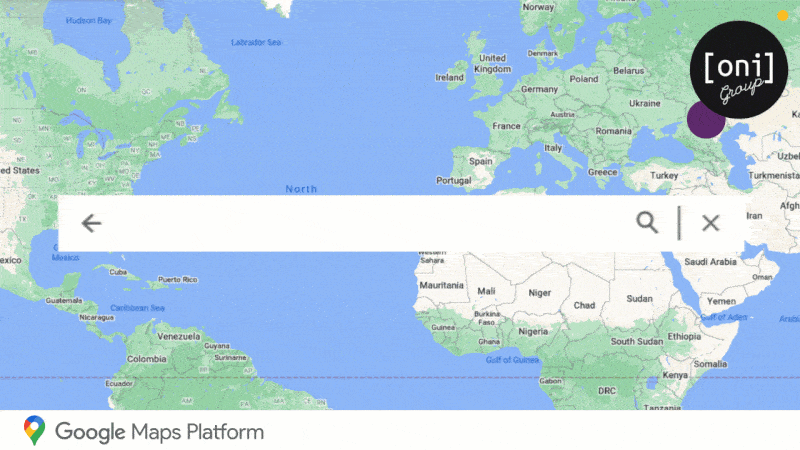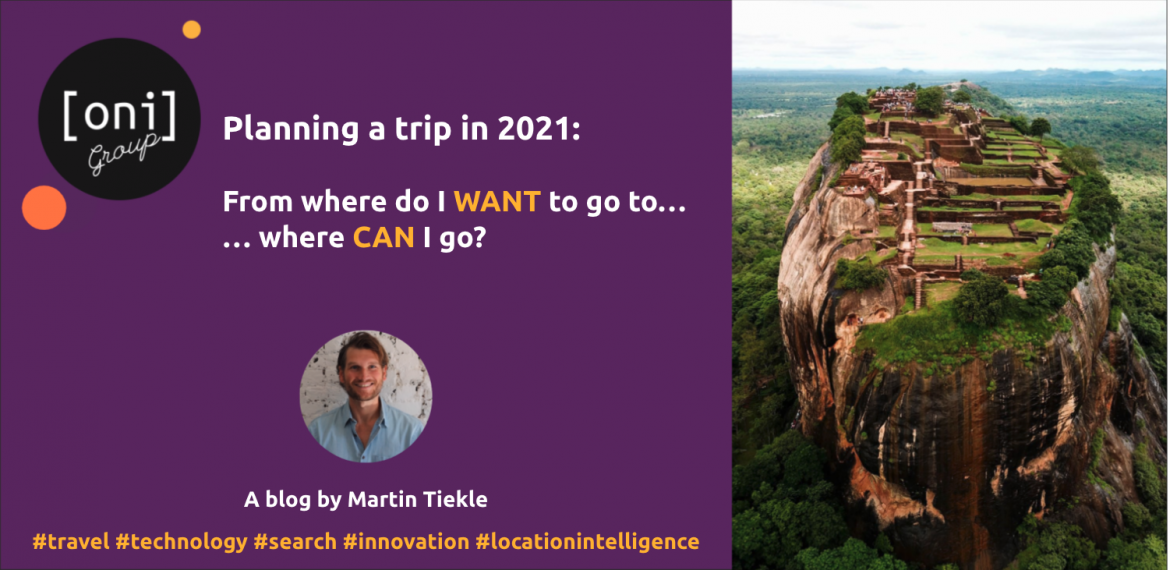I used to be a hardcore traveller - every few weeks I was on a plane or checking into a hotel. However, since March 2020, travel has been far more complex and in some cases an impossible task. For the past 18 months, in between thinking how I could escape my London flat, I’ve been wondering how it will all change post-pandemic. Coming from the tech world I wondered even more… How will technology shape the future of travel experiences?
Booking travel in 2021
In July 2021, I finally booked a trip! How easy was it? Not particularly. Could it be better? Absolutely. In this blog, I’ll take you through my experience of planning a trip in 2021 and how the process can be improved with technology. When thinking about travelling pre-pandemic, we would ask ourselves, “where do I want to go next?” In 2021… it’s all about “where are we able to go?” Navigating exit, entry, quarantine and test requirements are a nightmare. Sure, it’s all listed on government websites - but it depends on where you’re coming from, how long you’ve been there, the type of test you do, what travel certificate you receive etc etc.
How have travel companies innovated in the last 18 months?
This is where I got excited. Almost 2 years ago, I was lucky enough to do a presentation to the travel industry (with Google) where we assessed search and booking experiences in travel. There were some wild stats at the time… According to Tnooz, 39% of customers dropped off a travel service based on a poor search experience not providing enough research. Booking.com said 41% of users wanted assistance to make recommendations for travel…
With this in the back of my mind, I dusted off the various travel booking apps and websites, with a keen interest to see how these different companies had revamped their experiences over the past 18 months. With so few travellers, the opportunity to innovate has never been better. Perhaps a new discovery experience, an intuitive new way to help find that perfect destination, navigate the covid requirements, something that reduces the complexity that is travelling in 2021… Unfortunately, it was wishful thinking…and if I look for more local travel vs the old Ibiza and Thailand it looks even worse…
There’s a fantastic opportunity to improve travel experience through technology
Not only was it the same old ‘search and list’ experience: the apps provided no recommendations that adhered to covid guidelines. So after spending about 4 hours trolling through government covid travel sites, I manually worked out a handful of possible destinations, jumped back on the apps and started to compare one against the other. All I wanted was a summary of each destination vs another destination. For example, where's the best area to stay, what are the different experiences available (food, bars, tours, sites and gigs), what’s open and what’s closed. Was anything like this available outside of 10 million pre-pandemic blogs or 5000-word travel guides? Nope. Nada. Niente.
How search can make travel easier
It got me thinking, the technology and data we have available is perfect for this. All we need to do is understand what the customer wants. Just like when designing a new technology service, we need to know their requirements and then tailor the service to meet them. But how? Not by reinventing the wheel and confusing the customer, not at all, we can use the existing search, just make it a bit smarter.
Search is made up of two things: keywords and indexing. So rather than only giving a customer one keyword to search the index, what if we create something a little smarter, like a ‘search you can chat to’. Not another chatbot, but more like that friend who’s been everywhere, the one we all go to and rattle off all the different things we want in a trip but can’t find in the 2 destinations we looked at for 5 minutes, only to discover that the friend knows three perfect options in 2 seconds. Yeah that guy.
How can we make the search for travel smarter/how can we optimise it?
If you look at core topics of travel reviews from the leading travel and booking platforms, most trips involve 8 key parameters that help define what type of trip someone is after. Location, dates of travel, temperature, price, travel mode and 3 experiences.
If we could get a customer to give us these 8 simple words for building their ultimate trip, we could help travel companies design something incredible. Let’s look at the example below, which I’ve put together after visiting what seemed to be an infinite amount of websites while planning my holiday to somewhere on the beach in Europe.

The example above shows the different elements that went into the decision-making process, from the best area for hotels based on my requirements (scored out of 100), core attractions, right through to covid entry requirements. It can even give me an indication of how to get from point A to point B (which in Ibiza is really hard and expensive by the way). This information took me hours and hours to put together, as a user of a service like you can make an informed decision in a matter of minutes based on toggling the controls on the above.
As you can see, using those basic 8 keyword terms coupled with previous customer searches, engagement data (analytics) and a structured destination backend, we can start to provide the level of insight, recommendations and personalisation your customers need to make a decision and book on the platform.
This is proper search and discovery! All presented on a simple visual Google mapping interface.
Here I could add in different destinations and compare/contrast, based on the type of trip or experience I wanted. A beach holiday vs a hiking holiday. Singles holiday vs a family holiday. Imagine the experience each company could create by better understanding how we engage with a tool like that.
So how can we reboot travel going forward?
The core to attracting people back to the skies and to the world of travel is demonstrating holistic experiences with intuitive technology. We need to capture all the experiences we had before 2020 and package them up through services like the above to guarantee a smooth customer experience. Not only will the core products of flights and hotels be positively impacted but we can build out vast ancillary packages of transfers, tours and shows all accessible to book while people are on their dream holiday. Each experience is made up of core travel products that if missed degrade the experience for the customer. In Ibiza, getting around is super complex and expensive, if my research had provided this insight I would have booked a car for the duration of the stay.
Without this, we’re enabling the continuation of the biggest hassle that stops people from booking travel, poor discovery. In a post-pandemic world, this will only get harder and harder.
About OniGroup - Travel Expertise & Case Studies
We have over a decade of experience working with travel providers - from startups to large enterprises. We help businesses grow, optimise their operations and innovate through our consulting expertise, powered by the world-class leading technology of Google Maps and Cloud Platform.

